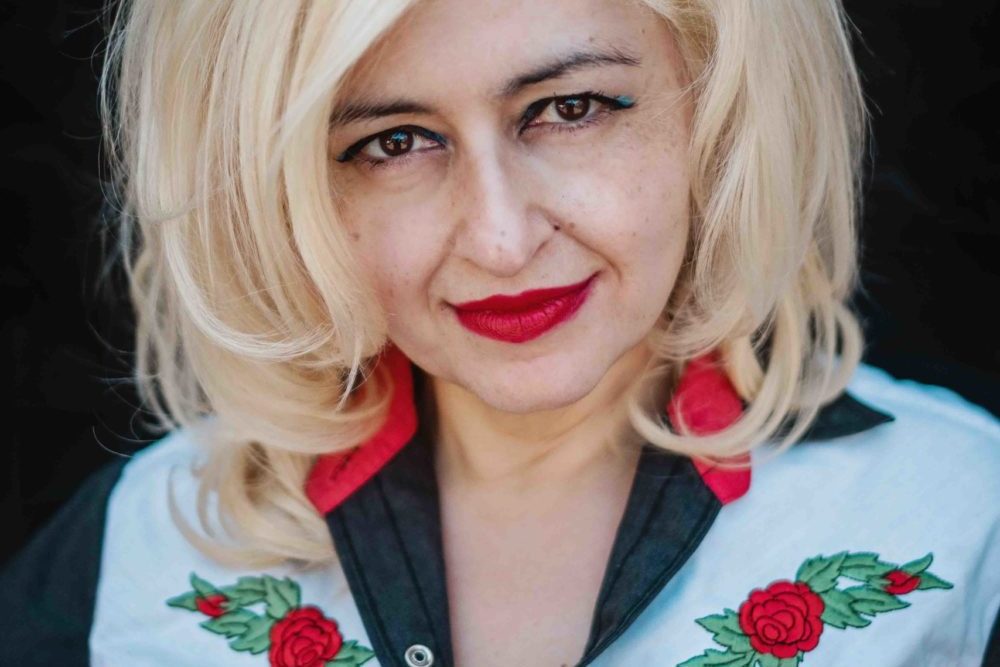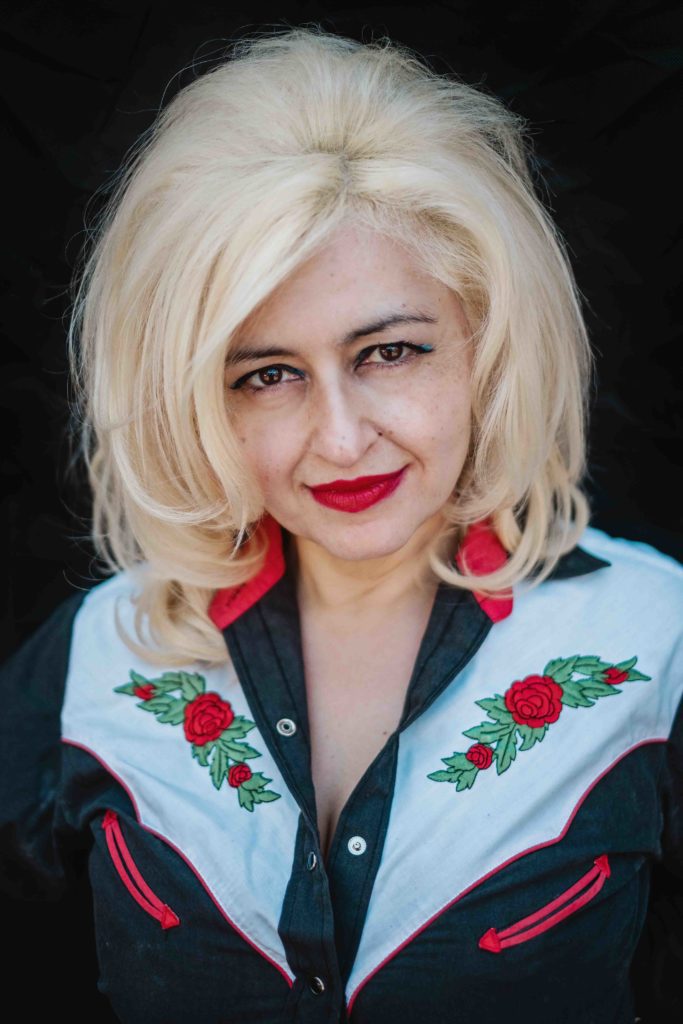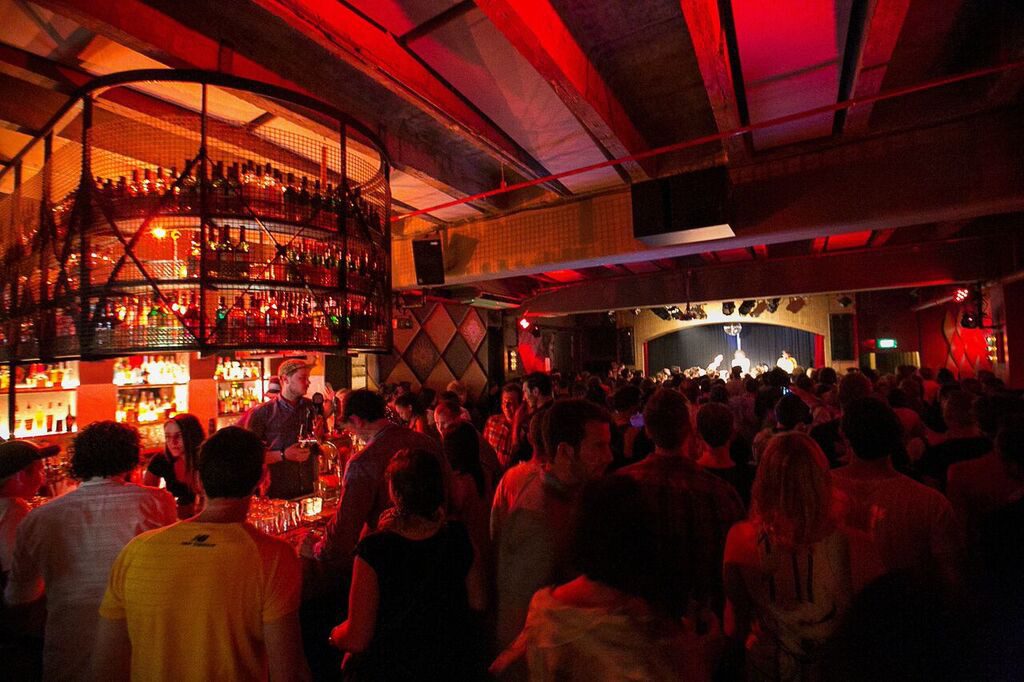

For those who have carved their career as artists, music journalists, publicists, label founders or roadies, there is no question of living, breathing – and working in – music. One woman who knows there is no other endeavour so addictive and enthralling as music is Melbourne’s Mary Mihelakos, who was inducted into the Melbourne Hall of Fame through Music Victoria on Friday. She’s an icon in this city, but like everything to do with Melbourne’s rock and roll scene, she doesn’t trumpet herself or demand fame and acclaim. Mihelakos just keeps creating, sharing and supporting artists and venues because there is no other way to live.
In her teens, Mihelakos began volunteering at community radio. Before she was even legally allowed in venues, she was being invited to gigs and invited to work for venues as a booker and publicist. Naturally, she began managing bands and booking live music venues in her late teens and 20s while studying media and journalism at Swinburne University. In 1995, she took on the role of Editor at Melbourne’s biggest and best known street press magazine Beat, where she remained for a decade. She also contributed to The Age newspaper’s “Sticky Carpet” column, which provided a summary of the happenings on the live music scene in Melbourne.
Not content to only write about Melbourne’s live music, Mihelakos founded the Melbourne Music Bus Tours, which ran from the Arts Centre in central Melbourne through the city, sharing local music history with curious visitors and locals alike. She also founded the Aussie BBQ at SXSW in 2003, which provides a global showcase for Australian music.
“I don’t really know what’s behind the induction,” says Mihelakos. “I did eight fundraisers for bushfires this year. Maybe, though, it’s because of 30 years of service to Melbourne music.”
In the late 1980s, Mihelakos was 14 and “a big music fan” by her own admission, with two older sisters who listened to 3RRR, so a young Mihelakos became a fan of the station by default. “I already was quite obsessed with The Models, Kids In The Kitchen and I’m Talking,” she recalls. “I’d go to the Palais Theatre by myself and mum and dad would coordinate to pick me up and drop me off. At that young age, I was so driven. There’s not many 14-year-olds who want to go to local gigs.”
Mihelakos got out the phone directory, rang up 3RRR FM and interrogated them as part of a school assignment. Mihelakos’ mother dropped her at the radio station, where she went on a tour and then returned in her school holidays to volunteer. “Everyone was a music nerd. I felt more at home at 3RRR than I did at school. One of the jobs I did was compiling the gig guide weekly. I had a typewriter, because there was only one computer at the station at the time, and I’d ring up all the venues to find out who was playing. I was a little fat Greek girl. I wasn’t annoying anyone. I was genuinely working and being enthusiastic about the records. It gave me that independence that I have now. I still, to this day, have very close relationships to all those people.”
Mihelakos did a lot of fill-ins for hosts on 3RRR; her broad musical interests meant that she was able to adapt to fill in on various programs. Though she’d later do a regular weekly hour on tour updates, she never hosted a regular show. “By the time I was 17, I was writing for Beat magazine and running the student radio station at Swinburne University. I was also booking bands at The Evelyn and Swinburne University, so hosting my own show wasn’t my focus,” she explains. Mihelakos met Scott Stevens from The Earthmen in her first year of university and began managing the band in 1991.
The Evelyn, in Melbourne’s musical heartland of Fitzroy, has been one of the city’s major venues since the ’80s; Mihelakos became the booker of the club in 1994, where she worked closely with fellow bookers, including Richard Moffatt of The Punters Club, to create events across multiple venues and in collaboration with community radio stations. “The venue only fit 300 people, but because the entry was only $2, people would come in for an hour then go elsewhere. The Punters Club front bar was full of interesting people, students… it was such an interesting place in the early 1990s,” says Mihelakos.
Mihelakos became the editor of Beat in 1995; the weekly paper is the entry point for many of Australia’s most prolific music journalists to build their portfolio and establish industry networks. “I was studying media at university and editing the student paper,” recalls Mihelakos. “But my relationship with Beat went back to when I got an interview with INXS for 3RRR FM and the editor of Beat at the time was desperate for the story, so I wrote it up for them. From that time on, I continued to do interviews for Beat magazine. I was also really good at hassling for advertising, which is why they really wanted me to stay on!”
She was also DJing at Melbourne’s iconic The Cherry Bar in an inner city laneway upon its establishment in 2000, earning her rent by playing four or five hour sets. “I’m so grateful to DJing for paying me to spend lots of time in record stores,” she says. “Really, there’s nothing I’ve been obsessed with the way I am about music. I feel confident in a room of 500 people, playing songs – that’s the thing I know. I love DJing and soundtracking people’s good times.”
Mihelakos began traveling for music events like CMJ in New York City and Austin’s SXSW, where she noticed that “a lot of Australian bands were playing there but they spent thousands of dollars to go over, play for 20 minutes, then go home.” This sparked the idea for her own day party, which she called the Aussie BBQ, which not only included Australian bands, but white bread, sausages and coleslaw salads as well. In 2003, she paid for the first event on her credit card. Record companies, booking agencies and major rock acts attended, leading to signings, bookings and tour plans. From the first year, it became an essential showcase for all Australian bands at SXSW.
“My bleeding heart mentality means I don’t do things for money, hence why I’ve gotten this award, this induction into the Hall of Fame. I’d be living in a nice house if I hadn’t started the Aussie BBQ,” laughs Mihelakos.
Sounds Australia paid Mihelakos a licensing fee in 2013, and it was a relief to Mihelakos to hand over the event to the organisation. Mihelakos had, at that point, set up the Aussie BBQ in London, Liverpool and Brighton in the UK and Nashville, New York and LA.
Mihelakos kept busy, even with Aussie BBQ off her plate – at that time, she was writing “Sticky Carpet” for Melbourne’s The Age newspaper (a must-read for any rock ‘n’ roll fans in Melbourne, though it ended in 2017 due to media budget cuts). She also founded and produced local council-run music festival Leaps and Bounds, which held around 300 musical events annually, resulting in Mihelakos being hospitalised twice for exhaustion between 2013 and 2016. As part of the festival, she also founded bus tours which guided ticket payers through Melbourne’s local music history.
Mihelakos also founded the Buried Country Tour, full of Indigenous country music legends, in 2016. Based on the book Buried Country, written by Clinton Walker, both Walker and Mihelakos were co-producers in creating the live performances. After touring the event nationally, Mihelakos and Walker retired the event in 2019. “It was a lot of time and yet another one of my crazy ideas, but it took off,” she says. “During all that time, I was DJing and writing and booking venues.” Her last gigs before the pandemic sidelined shows included booking shows for The Thornbury Theatre and The Spotted Mallard in Melbourne’s inner north and putting together several bushfire benefits throughout January and February this year.
Meanwhile, fans of Mihelakos’ writing can check out the liner notes for the second Sound As Ever compilation, Stuck on the 90s. But there’s no doubt that COVID-19 has forced Mihelakos to slow down and take stock of it all. “I started making notes for my personal memoirs. It’s so fun to think of all the adventures I had as a teenager and when I went overseas. I have danced on stage with Iggy Pop and The Stooges six times across three continents! I attended The Big Day Out even year since 1992,” she says, adding, with a laugh, “I’ve done nothing for the last six months and now I’m being inducted into the Music Victoria Hall of Fame!”


